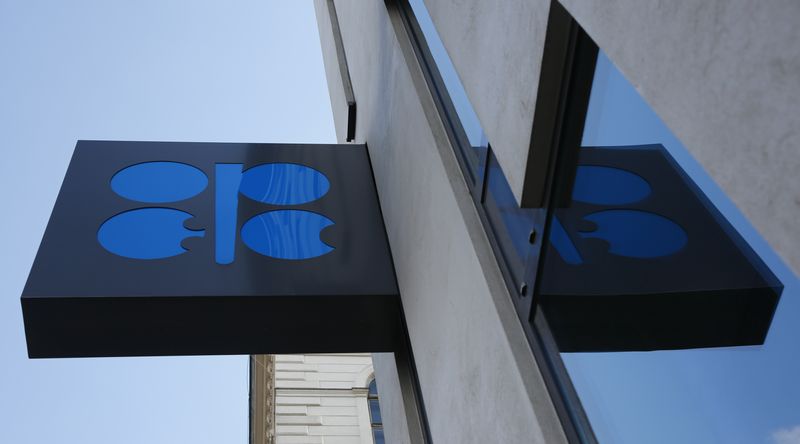By Arathy Somasekhar
HOUSTON (Reuters) -Oil prices fell nearly $6 a barrel on Tuesday, the steepest decline in about a month, on fears that fuel demand could soften as global central banks hike rates to fight surging inflation, and as unrest in Iraq failed to dent the OPEC nation's crude exports.
Brent crude futures for October settled down $5.78, or 5.5%, at $99.31 a barrel after touching a session low of $97.55 a barrel.
The October contract expires on Wednesday and the more active November contract was at $97.84, down 4.9%.
U.S. West Texas Intermediate crude dropped by $5.37, or 5.5%, to $91.64.
With inflation near double-digit territory in many top economies, central banks could resort to more aggressive interest rate increases, slowing economic growth and fuel demand.
The European Central Bank should include a 75-basis-point interest rate hike among its options for the September policy meeting, Estonian policymaker Madis Muller said on Tuesday.
German inflation in August rose to its highest in almost 50 years, data showed. Hungary's central bank raised its base rate by 100 basis points to 11.75%.
Bets on another oversized Fed rate hike also boosted the dollar. A stronger greenback makes dollar-denominated oil more expensive for buyers with other currencies.
Prices tumbled after comments from Iraq's state-owned marketer SOMO that the country's oil exports had been unaffected by unrest, said UBS analyst Giovanni Staunovo.
Baghdad's worst clashes in years between rival Shi'ite Muslim groups continued for a second day before subsiding when powerful cleric Moqtada al-Sadr ordered his supporters to go home.
SOMO said it could redirect more oil to Europe if required.
Prices felt more pressure when Russia's fastest-growing oil producer, Gazprom (MCX:GAZP) Neft, said it plans to double oil output at its Zhagrin field in Western Siberia to more than 110,000 barrels per day.
Investors will watch the meeting of the Organization of the Petroleum Exporting Countries (OPEC) and allies including Russia, known collectively as OPEC+, on Sept. 5.
Saudi Arabia last week raised the possibility of production cuts from OPEC+, which sources said could coincide with a boost in supply from Iran should it clinch a nuclear deal with the West.
In another possible supply boost, Venezuela's oil minister said the country was ready to move ahead with business with the oil major Chevron Corp (NYSE:CVX), adding that progress to relaunch the operations depends on licenses from Washington.
With most producers already operating at or above capacity and growing signs that the global economy may be slowing, some reduction of supply is looking increasingly likely in the coming months, said Matt Weller, head of research at FOREX.com and City Index.
U.S. crude stockpiles rose, while fuel stocks fell in the latest week, according to market sources citing American Petroleum Institute figures on Tuesday.
Crude stocks rose by about 593,000 barrels for the week ended Aug. 26, according to the data. U.S. crude oil stockpiles are likely to have fallen in the week to Aug. 26, a preliminary Reuters poll showed on Monday.

The Energy Information Administration, the statistical arm of the U.S. Department of Energy, will release its own figures at 10:30 a.m. (1430 GMT) on Wednesday.[EIA/S]
U.S. gasoline futures settled at $2.6944 per gallon on Tuesday, its lowest close since Feb 18, before Russia's invasion of Ukraine.